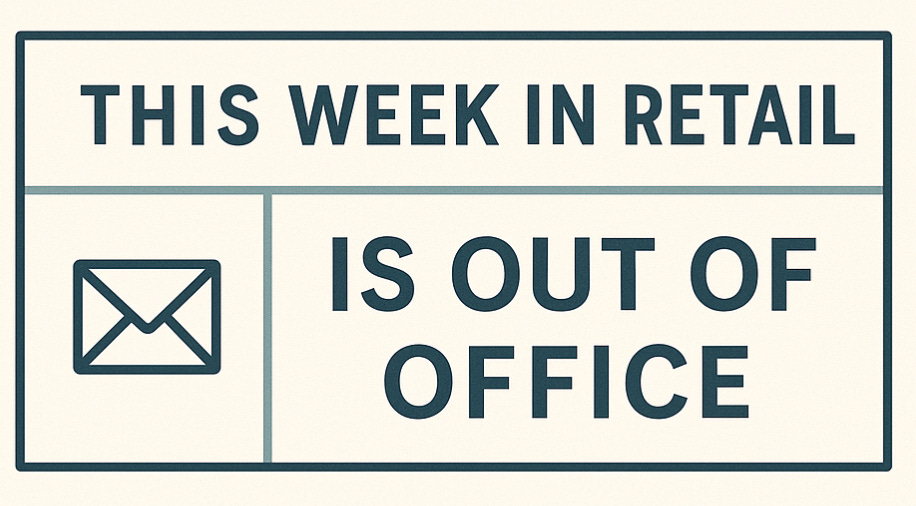This Week in Retail #76
TWIR is Relocating
Hey Friends,
This Week in Retail is Relocating. We are in the process of moving and therefore the updates will be quite short today.
Here’s some things I think you should catch up on…….
Ashley Buchanan was terminated as CEO of Kohl’s after just 106 days due to ethical violations involving an undisclosed personal relationship with Chandra Holt, founder of Incredibrew, a vendor that received favorable contracts from Kohl’s under Buchanan's direction. An internal investigation revealed that Buchanan failed to disclose this conflict of interest, leading to his dismissal and forfeiture of equity awards and a $2.5 million signing bonus.
Michael Bender, a Kohl’s board member, has been appointed interim CEO while the company searches for a permanent replacement.
UPS is laying off around 20,000 workers, largely due to declining parcel volumes and cost-cutting efforts after its expensive labor deal with the Teamsters union in 2023. CEO Carol Tomé is under pressure to improve margins, and the company is restructuring its network for greater efficiency. Most of the job cuts are non-union positions in areas like management and support functions.
Amazon is investing $4 billion to expand its logistics network into rural America, aiming to cut delivery times and reach new customers. This includes building more delivery stations and sortation centers in less-populated areas, and working with more independent delivery partners. It’s part of Amazon’s strategy to reduce its reliance on UPS and FedEx and control more of the last-mile experience.
Amazon is reportedly in talks to take a stake in Saks.com, which could give Amazon a stronger foothold in luxury retail. The deal would merge Saks’ online operations with Neiman Marcus, potentially creating a luxury e-commerce giant backed by Amazon’s technology and logistics. It’s also seen as a strategic move by Amazon to elevate its fashion image and compete with platforms like Farfetch and Net-a-Porter.
Last week, Saks Fifth Avenue introduced a dedicated storefront on Amazon's Luxury Stores platform. This initiative offers Amazon customers access to a curated selection of high-end fashion and beauty brands, including Balmain, Stella McCartney, Ganni, and La Prairie. The storefront is designed to emulate a luxury shopping experience, intentionally omitting typical Amazon features like star ratings and algorithmic recommendations to maintain brand prestige.
Saks manages its own inventory and fulfillment for this storefront, ensuring that the luxury standards associated with its brand are upheld. This approach allows Saks to leverage Amazon's vast customer base and logistical capabilities while maintaining control over the customer experience. The collaboration between Amazon and Saks signifies a strategic effort to modernize the luxury retail landscape. By integrating Amazon's technological prowess with Saks' luxury retail experience, the partnership seeks to attract a broader customer base, including younger demographics accustomed to online shopping.
This move also positions Amazon to compete more directly with other luxury e-commerce platforms, potentially reshaping consumer expectations and shopping behaviors in the high-end market.
Burlington Stores is reportedly acquiring select Joann locations as Joann navigates financial troubles and store closures. Joann recently filed for bankruptcy, and Burlington is seizing the opportunity to expand its off-price footprint by taking over real estate in key markets. The move could help Burlington continue its growth streak by snagging discounted leases and reaching new customer segments.
VF Corp. has laid off about 400 employees globally as part of its ongoing turnaround plan. The cuts, made over the past few months, affected staff across various brands and regions. This round follows earlier layoffs announced in January and at a VF subsidiary in November, and is tied to a broader reorganization of commercial functions.
President Trump recently met with top executives from Walmart, Target, and Home Depot at the White House to discuss the mounting impact of tariffs on imported goods. Retailers expressed concerns that higher import costs—particularly from China—could lead to price hikes for consumers and strain supply chains ahead of key shopping seasons. Amazon was also part of the broader conversation, with discussions touching on how major retailers are considering strategies like ramping up advertising revenue and cutting customer perks to help absorb the additional costs. The meeting comes amid ongoing trade tensions and growing pressure on the retail industry to manage inflation and maintain competitiveness.



